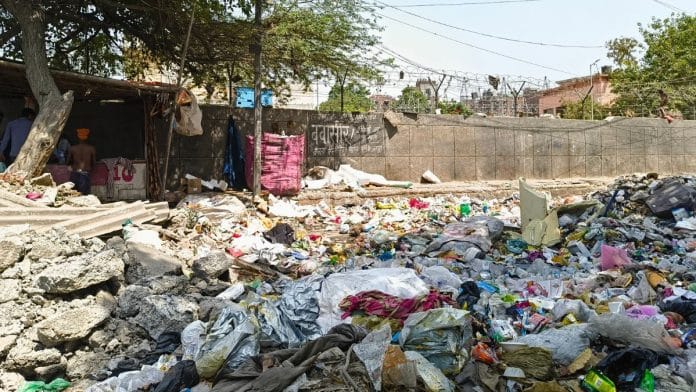Thank you dear subscribers, we are overwhelmed with your response.
Your Turn is a unique section from ThePrint featuring points of view from its subscribers. If you are a subscriber, have a point of view, please send it to us. If not, do subscribe here: https://theprint.in/subscribe/
I write this piece with authority. Have spent forty years of my life studying garbage, its mismanagement and management in India and around the world. Was invited by Leister in the United Kingdom and Maryland in the United States of America to study the prevalent systems, compare them with our de-centralized system, and help them improve their solid waste management systems. United Nations Cell for Human Settlements conferred Best Practices award for the work in this field.
I started decentralised management of garbage in 1994 at Asian Games Village. By 2015 our model had been replicated by a maximum number of householders, 30 residential colonies of various economic strata, 12 education institutes, 8 bazars, and colony markets. It was neither dependent on contracts or land allocation by the government nor on heavy vehicles, loaders, heavy machinery, etc. It was a community & composting, decentralised, down-to-earth, economic, employment-generating, and self-sustaining model.
Centralized versus de-centralized models:
According to Professor Vito Tanzi in an International Monetary Fund study corruption in India is caused by excessive regulations, authorization requirements, complicated taxes, and licensing systems -all prevalent in the Centralised model.
The decentralized system brings the communities closer to the team of solid waste managers and has none of the negatives of the former.
Instead of following the successful decentralized model, the government opted for a centralised model which has failed as is obvious with the latest verdict of Supreme Court about the ‘sorry state’ of solid waste management in the Capital.
Nowhere in Solid Waste Management Rules 2016 covered in 91 pages of the Gazette of India decentralized management is mentioned.
Future scenario
If the present centralised system continues then by 2050 when the Indian population is estimated to increase to 1750 million, per capita packing paper consumption to 13.5 Kg and plastic consumption to 17.2 Kg per area under landfill would need to be around seven times greater than that used today.
Way out
I do not see decentralized management as an option but the only way out. It makes citizens cognizant, improves the lives of waste collectors, and results in zero garbage colonies. It is everyday work and unless organized well and undertaken by an organized dedicated ethical team will not work.
Waste Managers
Most of us cover our noses and turn the other way on approaching a garbage dump, but there are innumerable children, women, and men who manually rummage through these dumps in search of a livelihood. These children, women, and men were practicing segregation of garbage even before we contemplated making it a part of our daily lives. But instead of being recognized for their immeasurable contribution towards ameliorating our garbage problem, these people are forced to eke out a miserable living. Poverty, disease, and disrespect are their life partners. A decentralized model elevates them.
Course on waste management
I am positive that awareness campaigns, demonstrations, and interaction at a more personal level would yield results. Instituting a course on waste management could help citizens get an in-depth understanding of the issues and methods of managing waste. Students would undertake studies on the waste management situation in the country which would lead to discussion on the topic and give rise to innovative solutions for our specific problems.
A short course on waste management for all and a detailed one for students focusing on indigenous scientific technologies, traditional wisdom and employment-generating, self-sustaining methods for managing waste would result in a per capita reduction of waste produced.
Steps for decentralised management of solid wastes:
- Studying the quantum of garbage produced by the colony.
- Selecting a patch of wasteland within the colony for pit composting or selecting the right composter.
- Training local rag pickers and unemployed youth to collect, segregate and compost the garbage in an organised way. Selecting the most efficient, who can read and write as Supervisor.
- Sending circulars for all residents to join the scheme and give subscriptions between the 3rd and 7th of the month.
- Getting appropriately designed vehicles for transportation of garbage within the colony.
- Distributing the money earned by selling recyclables and compost.
Last words
To save Delhi from becoming an open garbage dump the honorable Supreme Court of India must direct the Government to opt for de-centralised model of managing solid wastes. The residents must take responsibility for the garbage they produce. Everyone in Delhi must become vigilant to make others stop littering. Nothing works better than social pressure. Let there be a ‘Best Practices’ award. Let everyone police everyone both in the colonies and anywhere outside be it a street, road, or public place. The defaulters must be socially shamed. Welfare associations must learn from one another and compete for best practices awards.
These pieces are being published as they have been received – they have not been edited/fact-checked by ThePrint


